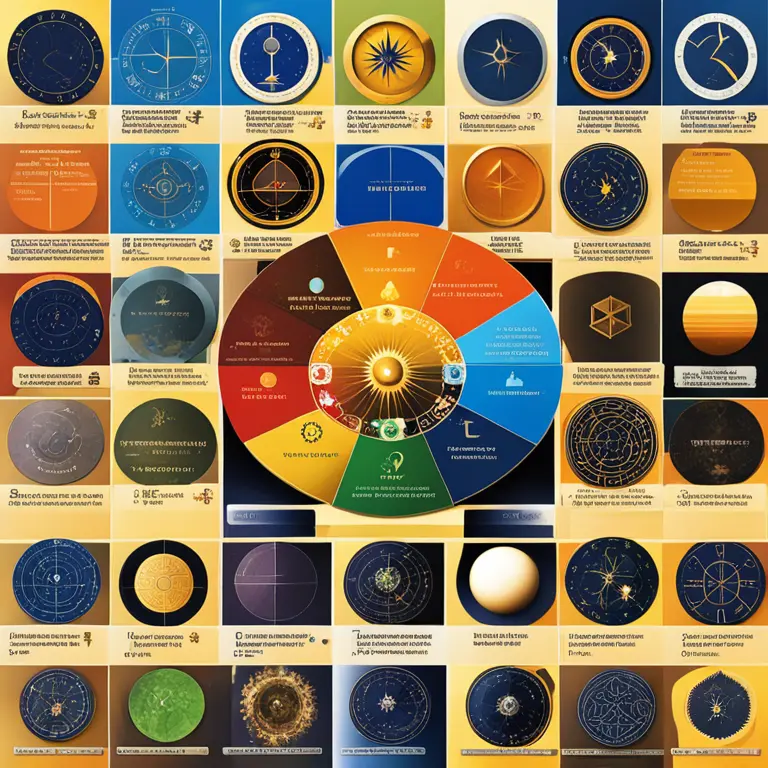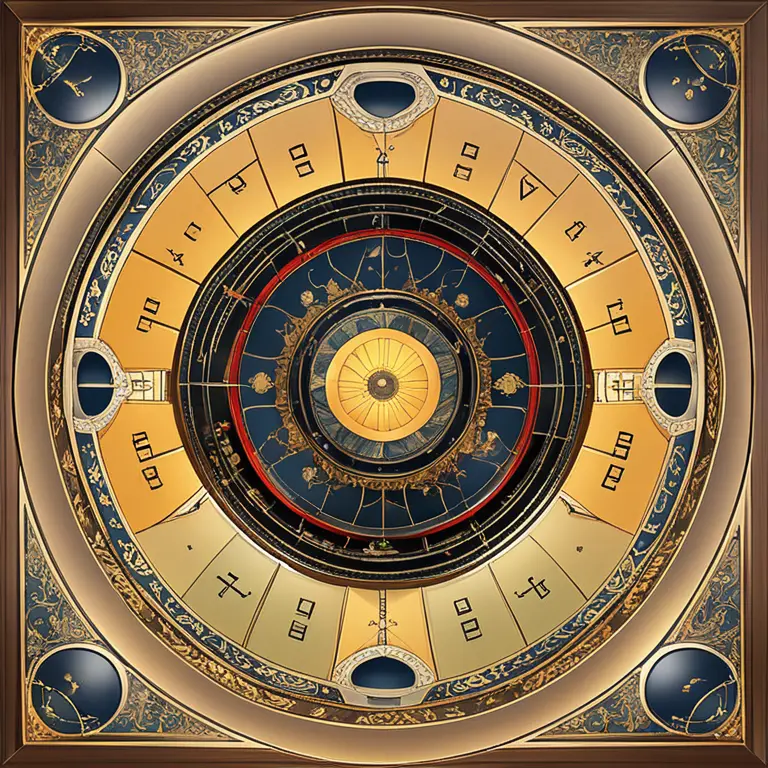
The Varied House Systems in Astrology
Delve into the intricate world of astrology house systems and how they influence personal horoscopes and readings.
article by Priya Deshmukh
Astrology House Systems: An Overview
In the cosmic world of astrology, the concept of house systems serves as a fundamental framework for personal readings. Astrologers use these divisions of the sky to interpret an individual’s experiences, personality, and future possibilities. Each house represents different areas of life, such as identity, relationships, career, and more. While there are many house systems utilized in astrology, they all share the common goal of providing a more personalized and nuanced interpretation of one's birth chart, also known as a natal chart. As we sail further into 2024, the precision with which these systems are understood and applied is ever-increasing, harnessing technology and historical knowledge alike.

Placidus: The Time-Honored Choice
The Placidus house system, named after the 17th-century astrologer Placidus de Titis, is the most popular method historically and presently. It is distinguished by its time-based approach to dividing up the celestial sphere. The Placidus system uses the time it takes for each degree of the ecliptic to rise above the horizon to define the cusps of the houses. This system can give a deeply personalized birth chart reading owing to its sensitivity to locations and time of birth. However, one must note that this system picks up discrepancies at more extreme latitudes, which has prompted astrologers to explore and rely on other systems alongside it.

Whole Sign Houses: The Ancient Tradition
Whole Sign Houses represent the oldest house system, tracing back to Hellenistic astrology. Its simplicity lies in allocating the entire sign to a house, irrespective of the degree of the Ascendant. In this system, if your Ascendant is in Leo, your entire first house is Leo, your second house would be Virgo, and so on, encompassing all twelve zodiac signs. This approach provides a straightforward interpretation and is gaining renewed popularity for its clearness, especially as modern astrologers revisit ancient practices with new eyes and understanding.

Equal House System: A Balanced View
The Equal House system follows a direct method by dividing the sky into twelve equal segments of 30 degrees each, starting from the degree of the Ascendant. This system suggests a balance and a sense of equality amongst the spheres of human life. While some astrologers appreciate this symmetry and simplicity, others argue it lacks the dynamic and nuanced interpretation that other systems offer. Nonetheless, the Equal House system enjoys a loyal following for its consistent and straightforward approach.

Koch System: A Geocentric Perspective
Developed by the German astrologer Walter Koch, this system is geocentric and factors in the Earth's rotation around its axis. Like the Placidus system, it uses birthplace and time, but the calculation method is distinct, resulting in slightly different house cusps. The Koch system is particularly known for its effective use in natal astrology and is preferred among many European astrologers. As data calculation methods continuously improve, the Koch system's accuracy and application have also evolved.
Topocentric System: The Personal Space
A less prevalent but insightful system is the Topocentric house system. It was developed to correct distortions encountered in the Placidus System at extreme latitudes. This system is unique in that it incorporates the observer's perspective from the Earth's surface, considering a topocentric or local space view. This emphasizes an even more specific and personalized analysis of the birth chart. While its use may not be widespread, those who apply it swear by its precise delineations.
Choosing the Right House System
With numerous systems at their disposal, astrologers select the one that best aligns with their interpretation style and the focus of the reading. The decision can be influenced by cultural practices, the purpose of the reading, and even the astrologer's intuition about what will best serve their client. As we continue to see advancements in astrological software and applications, the ease of experimenting with different house systems may increase. This allows both astrologers and astrology enthusiasts to explore and compare readings using various systems to find the most resonant and accurate interpretations.
Published: 2/13/2024
Modified: 2/13/2024
More predictions
Come back here soon to learn more about yourself and your future


Mastering Tarot Basics: A Beginner’s Guide
Embark on a journey into the art of tarot reading with our beginner’s guide, covering fundamental concepts and practical how-to steps.


The Essential Tarot Card Meanings Guide with Images
Discover the meanings behind the mystical tarot cards with our comprehensive guide, complete with vivid imagery to enhance your understanding of each card's symbolism.


The Tarot Card Deck: A Gateway to Mystical Insights
Discover the tarot deck's rich symbolism and its role in personal growth and foresight. An insightful guide to the power of tarot cards.